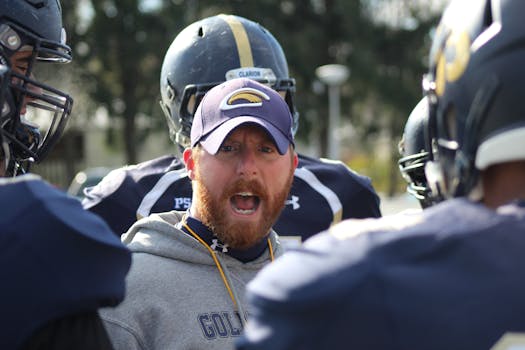The Role of a Coach in Mental Sports: How to Motivate, Guide, and Build a Strong Mind
In the realm of sports, physical prowess often takes center stage. However, the mental aspect of athletic performance is equally crucial, especially in high-stakes environments. Coaches play a pivotal role in shaping the mental fortitude of athletes, guiding them through challenges, and motivating them to reach their full potential. This article delves into the multifaceted role of a coach in mental sports, exploring strategies for motivation, guidance, and the development of a resilient mindset.
Understanding Mental Sports
Mental sports encompass activities where psychological factors significantly influence performance. These include sports like chess, eSports, and even traditional athletics where mental resilience is key. According to a study published in the Journal of Sports Sciences, mental training can enhance performance by up to 20%. This statistic underscores the importance of mental coaching in achieving success.
The Coach’s Role in Motivation
Motivation is the driving force behind an athlete’s performance. Coaches are instrumental in fostering this motivation through various techniques:
- Setting Clear Goals: Coaches help athletes establish specific, measurable, achievable, relevant, and time-bound (SMART) goals. This clarity provides direction and purpose.
- Positive Reinforcement: Celebrating small victories and providing constructive feedback can boost an athlete’s confidence and motivation.
- Creating a Supportive Environment: A coach should cultivate a culture of support and camaraderie, where athletes feel safe to express their fears and challenges.
For instance, renowned tennis coach Nick Bollettieri emphasizes the importance of mental conditioning alongside physical training. He often shares stories of how he motivated players like Andre Agassi by focusing on their strengths and instilling a belief in their capabilities.
Guiding Athletes Through Challenges
Every athlete faces obstacles, whether they are performance slumps, injuries, or personal issues. A coach’s guidance during these times is crucial:
- Developing Coping Strategies: Coaches can teach athletes techniques such as visualization, mindfulness, and breathing exercises to manage stress and anxiety.
- Encouraging Resilience: Coaches should instill a growth mindset, helping athletes view challenges as opportunities for growth rather than insurmountable barriers.
- Providing Tactical Support: In competitive scenarios, coaches can offer strategic insights that help athletes navigate difficult situations effectively.
A case study involving Olympic swimmer Michael Phelps illustrates this point. His coach, Bob Bowman, played a crucial role in helping Phelps overcome anxiety and pressure through mental conditioning techniques, which ultimately contributed to his record-breaking performances.
Building a Strong Mindset
A strong mindset is essential for athletes to perform at their best. Coaches can facilitate this development through:
- Regular Mental Training: Incorporating mental exercises into training routines can help athletes build focus and resilience.
- Encouraging Self-Reflection: Coaches should prompt athletes to reflect on their performances, identifying areas for improvement and celebrating successes.
- Modeling Positive Behavior: Coaches must exemplify the mental toughness they wish to instill in their athletes, demonstrating how to handle adversity with grace.
Research from the American Psychological Association indicates that athletes who engage in mental training show improved performance and reduced anxiety levels. This highlights the importance of a coach’s role in integrating mental skills into regular practice.
Conclusion
The role of a coach in mental sports extends far beyond mere physical training. Coaches are vital in motivating athletes, guiding them through challenges, and building a strong mindset. By employing strategies such as goal setting, positive reinforcement, and mental training, coaches can significantly enhance their athletes’ performance. As the landscape of sports continues to evolve, the emphasis on mental conditioning will only grow, making the coach’s role more critical than ever. Ultimately, a well-rounded approach that combines physical and mental training can lead to extraordinary achievements in the world of sports.
